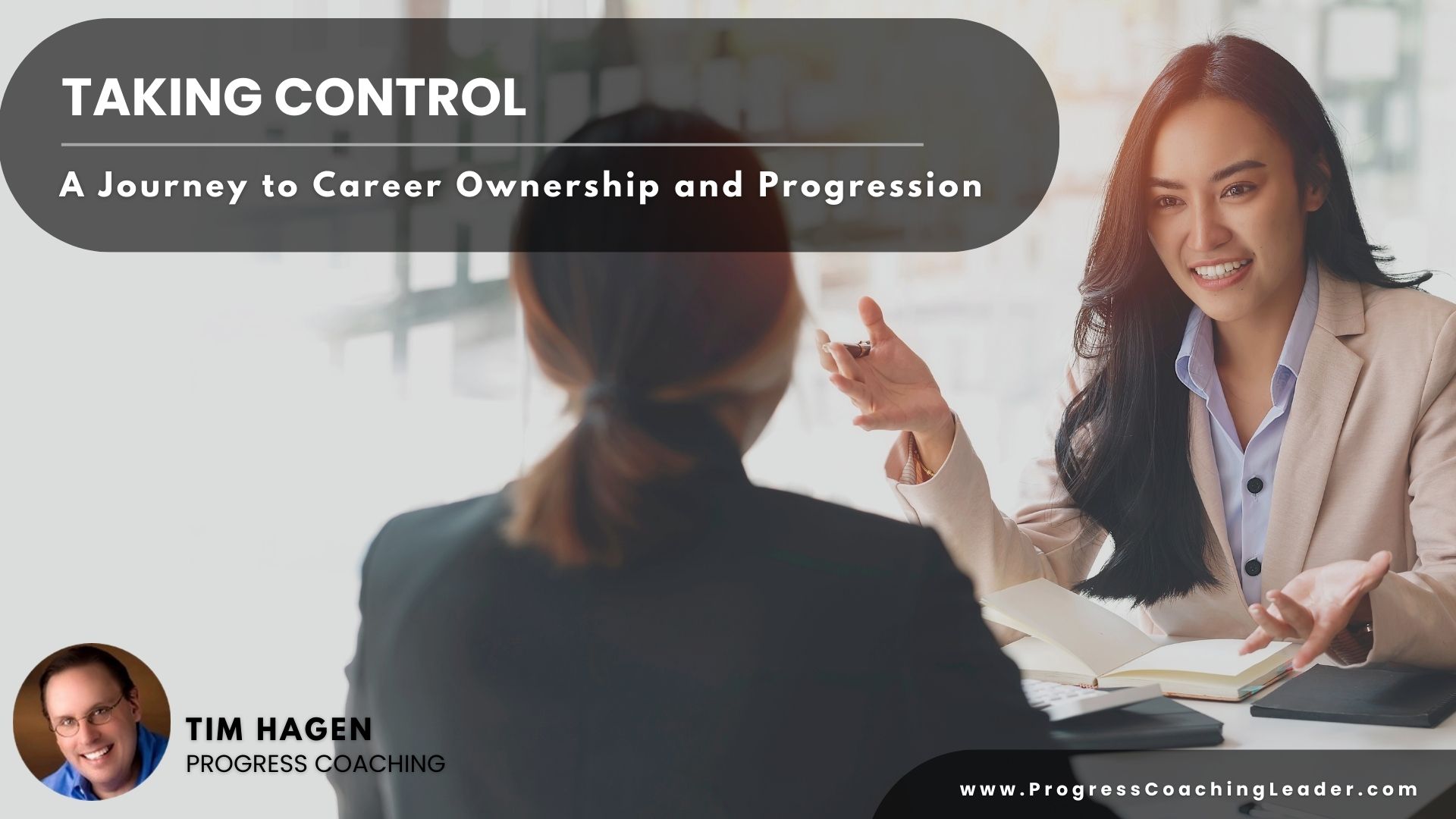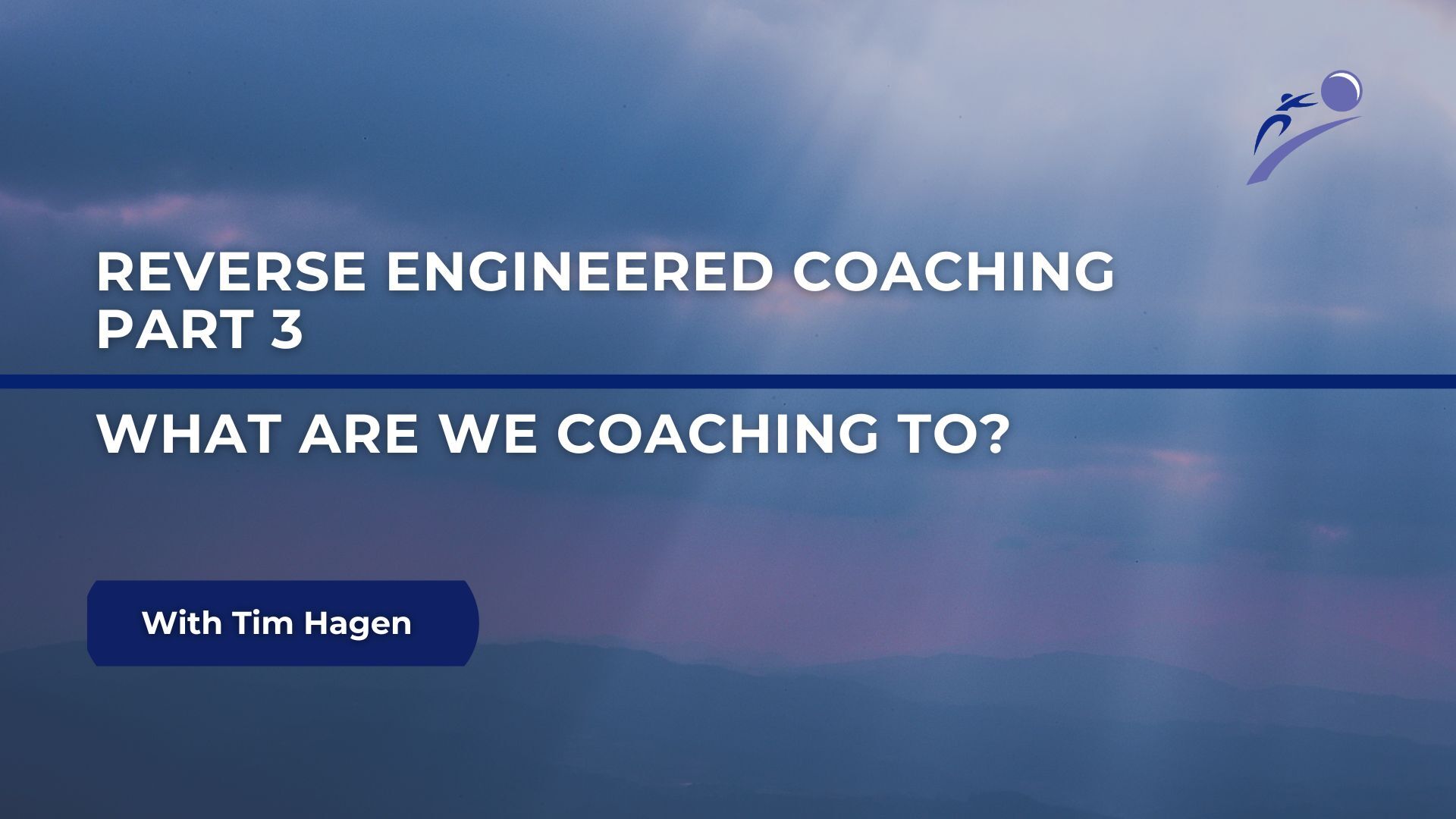Are you taking control of your career or are you letting your company do it for you?
Break free from complacency as we guide you on a journey to career ownership, a path where you no longer rely on your company for career progression.
We discuss the importance of consistency, continuity, and the crucial role of coaching in achieving your career goals. We'll also be revisiting Mark's story from our previous episodes as he navigates his way into the marketing and data analytics field. Using Mark's example, we introduce Learning Projects for accountability, a powerful tool to keep you focused and accountable between coaching sessions.
We also revisit two of our previously discussed coaching strategies - whiteboard and GOAL-based coaching - and explain how they can help you uncover the skills required for your desired career.
So, quit waiting around and take charge of your own career progression. Listen in as we uncover the strategies to navigate you toward your professional aspirations.
Once you've established where someone wants to go in their career-- what their goal is, what their career aspirations are, their ideal destination-- we have to use coaching to drive it.
People are creatures of habit. Even though people understand their motivation and where they want to go, some people can be complacent or lazy, and we, as coaches, have to help them up that hill. They have to understand what they need to own, and that's their career.
Often, employees get lulled into the idea that their company is responsible for training them. Yes, that's true as it relates to the job, but it is certainly not true in terms of their personal career. That is owned by each and every one of us.
How do we make sure that we create continuity and consistency when coaching?
We teach something called Learning Projects for accountability between coaching sessions.
Let's use our character from prior episodes. Mark wants to go into marketing and data analytics. He doesn't want to be a people leader. We've bridged the gap. He needs to understand more about analytics and data. The learning project could be every week he comes in and shares two new things he learned about that ideal job specific to what he wants to accomplish. That way when Mark comes in, he's driving the conversation. He's driving the ownership of his own career, as he should.
Once you have a learning project, it's tied to the area you're coaching to. It's completed by the person between sessions. It starts and ends every coaching session, yet the work itself is completed between coaching sessions. That creates consistency, continuity, and application of the gaps that need to be addressed, learned, and practiced-- to go from the present state to the ideal state.
In previous episodes, we talked about whiteboard coaching, and GOAL-based coaching will help uncover the things needed for people to achieve their goals.
So, don't just have conversations. Create a bridge between those conversations, and that's where learning projects will serve you well.
Learning Project Ideas
-
To coach to a skill gap, write down all the skills needed to complete a task or project (specific to whatever area needs focus) on paper or digitally. Then, come in the next week and share two strengths you demonstrated that match up to the task list and the success you experienced. The following week, share one skill from this list that has an opportunity to improve and what steps you'll take to address it.
-
Write down a list of words/traits you feel describe a great leader and effective manager. Next week, share two words/traits you demonstrated in an effective way and the success you experienced. The next week, share one example where you honestly feel you have an opportunity to improve one of the words/traits on that list. Write down specific actions you can take moving forward to improve on that trait/skill.
If you are looking for a way to strengthen your organization, ask about our Coaching Champion Certification program, where we take everyday employees and use everyday conversations to strengthen the organization's culture. Coaching Champions inspire and motivate others and professionally challenge those who struggle with positivity.
Get More info Here: click here





